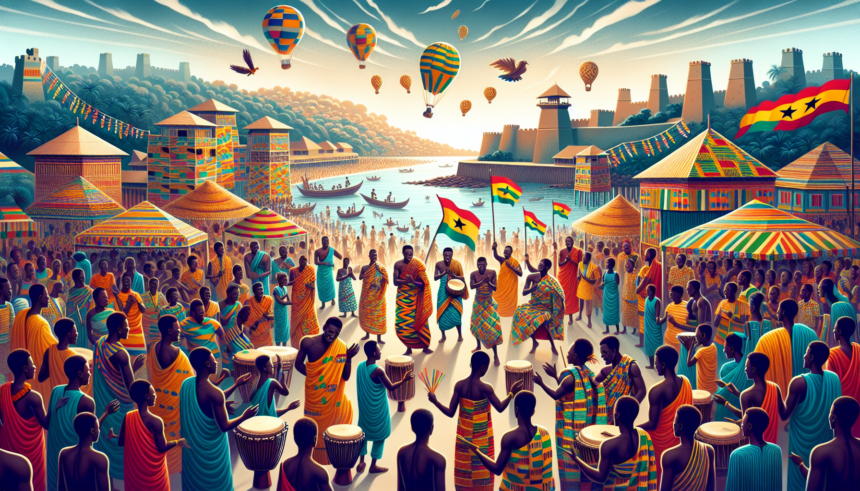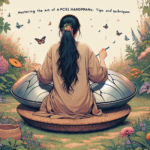Ghana, a West African nation rich in history and culture, is increasingly becoming a hub of artistic and cultural exchange, thanks in no small part to Panifest. This annual festival provides a platform for celebrating African heritage, fostering cultural understanding, and sparking conversations about the African diaspora. But Panifest is more than just a festival—it’s an experience that immerses attendees in Ghana’s cultural heart and leaves an indelible mark on their souls.
The Essence of Panifest
Panifest, short for Pan-African Festival, is an event dedicated to uniting people from across the globe to celebrate and explore African culture, history, and traditions. Launched with the intention of fostering unity among Africans and those in the diaspora, Panifest has grown over the years to become one of the most anticipated events in Ghana and across the continent.
The festival features a wide array of activities, including musical performances, art exhibitions, film screenings, panel discussions, and traditional ceremonies. It offers a unique opportunity to witness and participate in the vibrant cultural expressions that define Ghana and Africa at large.
A Week of Celebration
Panifest typically takes place over a week, drawing thousands of participants from around the world. The festival’s schedule is packed with activities designed to educate, entertain, and inspire. Each day brings a new experience, from sunrise drumming sessions to late-night concerts featuring some of Africa’s biggest musical talents.
Music and Dance
No African festival would be complete without music and dance, and Panifest is no exception. The festival hosts performances by local musicians, traditional dance troupes, and international artists, creating a vibrant tapestry of sound and movement. From the rhythmic beats of traditional drumming to the contemporary sounds of Afrobeat, the festival offers a diverse musical experience that celebrates the rich tapestry of African music.
Art and Craft
Art plays a central role in Panifest, with local and international artists showcasing their works in various exhibitions. These displays often feature a blend of traditional and contemporary art forms, offering attendees a chance to explore the evolving landscape of African art. Craftsmen and artisans also play a key role, bringing their unique skills and handmade creations to the festival. Visitors can peruse stalls filled with intricate jewelry, textiles, pottery, and other traditional crafts, each piece telling a story of cultural heritage and artistic talent.
Film and Literature
Panifest is also a platform for African filmmakers and writers to share their stories. The festival includes screenings of African films, providing a glimpse into the diverse narratives and perspectives that shape the continent’s cinematic landscape. Literary events, such as book readings and author discussions, offer attendees a chance to engage with African literature and gain insights into the themes and issues that resonate with African writers.
Celebrating Heritage
One of the most powerful aspects of Panifest is its focus on celebrating and preserving African heritage. The festival provides a space for attendees to reconnect with their roots, learn about their ancestry, and honor the traditions that have been passed down through generations.
Traditional Ceremonies
Traditional ceremonies are a highlight of Panifest, offering a glimpse into the rich cultural practices that continue to thrive in Ghana. These ceremonies often include drumming, dancing, and rituals that hold deep cultural significance. Participants are invited to join in these ceremonies, fostering a sense of community and shared cultural experience.
Cultural Workshops
Cultural workshops are another key component of the festival, providing attendees with hands-on opportunities to learn traditional skills and crafts. Workshops may cover a range of topics, from kente cloth weaving and bead making to traditional cooking and storytelling. These interactive sessions offer a deeper understanding of the techniques and practices that have been passed down through generations, ensuring that these cultural traditions continue to thrive.
Historical Tours
Panifest also includes organized tours to historical sites in Ghana, such as the Cape Coast Castle and Elmina Castle. These tours offer a sobering reminder of the transatlantic slave trade and the impact it had on the African continent. By visiting these sites, attendees gain a deeper understanding of the history and resilience of African people, fostering a greater appreciation for their shared heritage.
Connecting the Diaspora
One of the festival’s core missions is to connect Africans on the continent with those in the diaspora. Through panel discussions, networking events, and cultural exchanges, Panifest creates a space for dialogue and collaboration. These connections help to strengthen the bonds between people of African descent, encouraging a sense of unity and shared purpose.
Panel Discussions
Panel discussions at Panifest bring together experts, activists, and thought leaders to explore topics related to African culture, history, and contemporary issues. These discussions often address themes such as identity, migration, and the challenges faced by the African diaspora. By facilitating these conversations, Panifest helps to bridge the gap between different experiences and perspectives, fostering a deeper understanding and appreciation of the global African community.
Networking Opportunities
Networking events provide attendees with the opportunity to connect with like-minded individuals, build relationships, and explore collaborative opportunities. Whether through formal networking sessions or informal gatherings, these events help to create a supportive and dynamic community of people committed to celebrating and promoting African culture.
Conclusion
Panifest is more than just a festival; it is a celebration of African culture, heritage, and unity. Through its diverse array of activities and events, the festival offers a unique and immersive experience that leaves a lasting impact on all who attend. By bringing together people from across the globe, Panifest fosters a sense of community and shared purpose, highlighting the richness and diversity of African culture. As the festival continues to grow, it remains a powerful reminder of the importance of preserving and celebrating our cultural heritage.
Frequently Asked Questions
1. When does Panifest take place?
Panifest is typically held annually, usually in the summer months. The exact dates may vary each year, so it is best to check the festival’s official website or social media channels for the latest information.
2. Where is Panifest held?
Panifest is held in various locations across Ghana, with many of the events taking place in the capital city, Accra, as well as the coastal towns of Cape Coast and Elmina.
3. How can I attend Panifest?
Tickets for Panifest can be purchased through the festival’s official website. There are often a variety of ticket options available, from single-event passes to full festival passes that grant access to all activities and events.
4. Are there opportunities to volunteer at Panifest?
Yes, Panifest often relies on the support of volunteers to help with various aspects of the festival. Information on volunteer opportunities is typically available on the festival’s website, and applications are usually open several months before the event.
5. What should I bring to Panifest?
It is recommended to bring comfortable clothing and shoes, as there will be a lot of walking and standing. Sunscreen and a hat are also advisable, especially for outdoor events. If you plan to purchase souvenirs, bringing some cash is a good idea, as not all vendors may accept credit cards.





